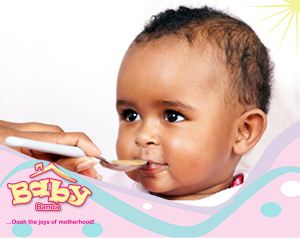One of the worrying trends that seem to be arising is babies who are being found to be anaemic by the end of their first year. This is caused by the lack of feeding your baby foods rich in iron after starting solids. It is important to ensure that your baby gets all the necessary nutrients needed to ensure sufficient iron intake.
Iron is a very important mineral needed by all cells of the body. The majority of body iron is found in red blood cells and the most important role in the body is that it forms part of haemoglobin, the red pigment in the blood which carries oxygen from the lungs throughout the body, and myoglobin which transports oxygen in the muscles. Iron is essential in the body for:
- Red blood cell production
- Aids in good mental function
- Builds muscle strength
- Helps to have a healthy immune system to help fight infection
If you suspect that your baby may be anaemic, please see your healthcare provider immediately. The signs and symptoms of iron deficiency in your baby may include
- Repeat infections
- Loss of appetite
- Lethargy
- Increased sweating
- Failure to grow at the expected rate.
The Major risk factors for the development of iron deficiency in children include
- Prematurity and low birth weight
- Exclusive breastfeeding beyond six months (not introducing solids)
- Introduction of cow’s milk as the main drink before 12 months of age
- High intake of cow’s milk
- Low or no meat intake
- Vegetarian eating
- Possible gastrointestinal diseases
- Lead poisoning.
Tips to prevent iron deficiency in babies less than 12 months of age
- Include an iron-rich diet during pregnancy. Red meat is the best source of iron and you can also get iron from chicken and fish. Options like chicken liver are excellent sources
- Tests to check for anaemia should be conducted during pregnancy. If your doctor prescribes iron supplements, take them only according to instructions.
- Breastfeed your baby or choose iron-fortified infant formulas.
- Don’t give your baby cow’s milk or other fluids that may displace iron-rich solid foods before 12 months of age.
- Don’t delay the introduction of solid foods.













